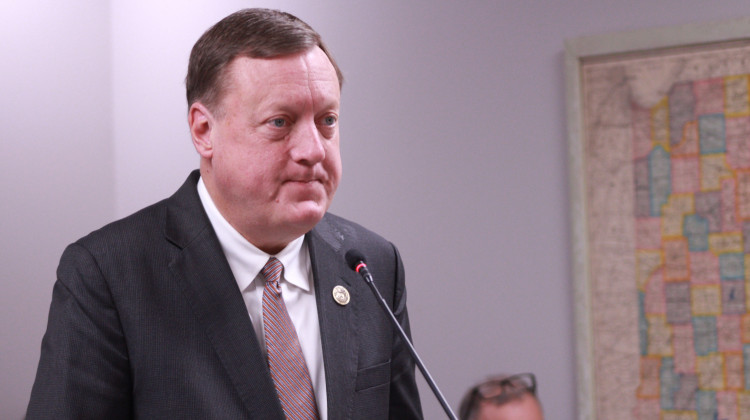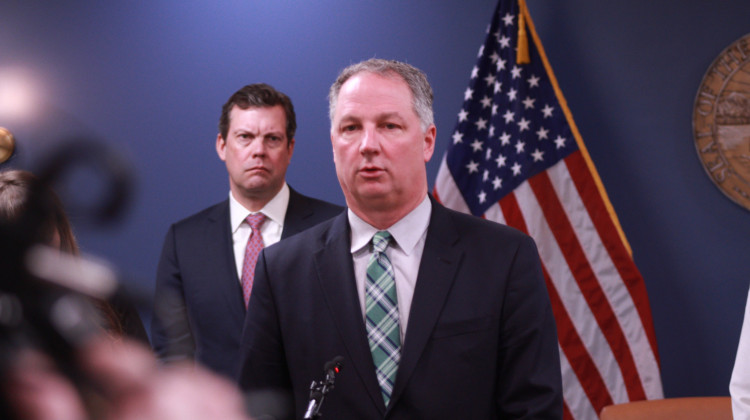
U.S. Attorney General delivers his remarks on immigration policy in Fort Wayne, Thursday, June 14, 2018.
Rebecca Green/WBOIU.S. Attorney General Jeff Sessions visited Fort Wayne Thursday to discuss the Trump administration’s immigration policies. During his remarks, Sessions strongly defended policies that separate undocumented children from their parents.
That’s even as faith communities push back.
Two of the country's largest religious denominations have scrutinized the Trump administration’s practices. The Southern Baptists requested a compassionate path to legal status and a more humane immigration system at its annual convention.
More sharply, U.S. Conference of Catholic Bishops president Cardinal Daniel DiNardo called it “immoral,” saying, “families are the foundational element of our society and they must be able to stay together.”
According to the Pew Research Center, 52 percent of Catholics in Northeast Indiana voted for Trump in the 2016 election. Sessions says he’s listened to faith leaders, and remains sympathetic to their concerns.
“But I am a law officer. A law officer for a nation state. A secular nation state; not a theocracy, it’s not a church,” Sessions said. “If we have laws -- and I believe we have reasonable immigration laws -- they should be enforced.”
This comment was a break from Sessions’ prepared remarks, and seemingly from a decades-long prioritization to the nation’s churches.
He spent 30 minutes defending the administration’s policies, and the message was simple: if you break U.S. immigration laws, you will be punished.
 DONATE
DONATE







 Support WFYI. We can't do it without you.
Support WFYI. We can't do it without you.